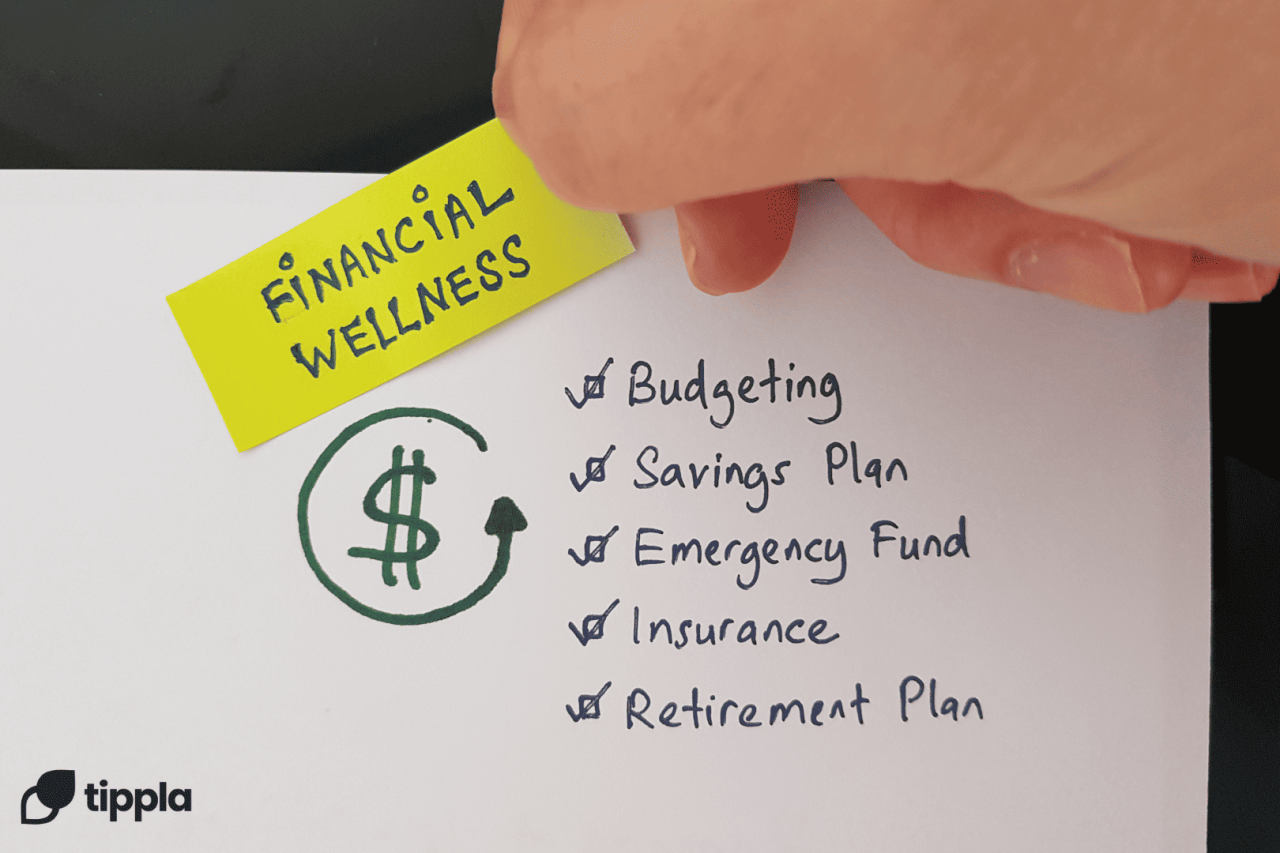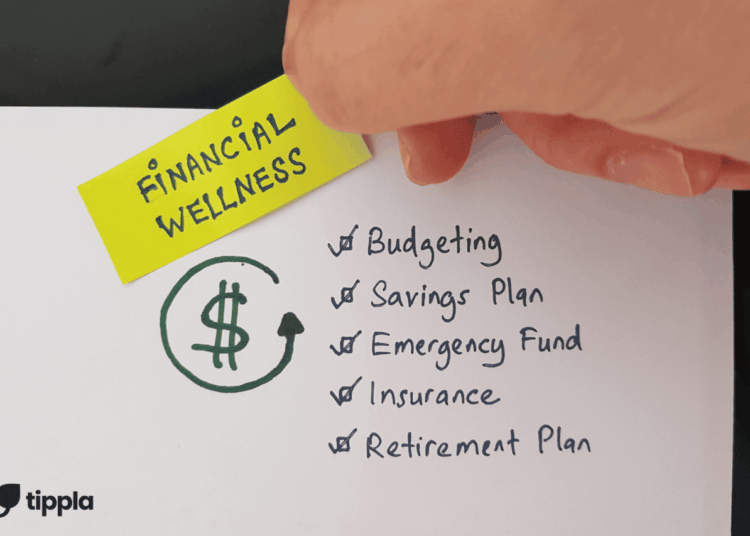Embark on a journey into the realm of financial wellness planning for millennials, where sound financial decisions pave the way to a secure future. From setting smart goals to managing debt and investing wisely, this guide explores essential strategies tailored for the millennial generation.
As we delve deeper, uncover the key aspects of budgeting, emergency funds, and financial education that play a crucial role in enhancing financial well-being. Let’s navigate the path to financial stability together.
Introduction to Financial Wellness Planning for Millennials
Financial wellness planning involves creating a strategy to manage your finances effectively, save for the future, and achieve financial goals. It goes beyond budgeting and includes aspects like saving for retirement, investing, and managing debt.Millennials, born between 1981 and 1996, face unique financial challenges compared to previous generations.
They entered the workforce during economic downturns, have high student loan debt, and often struggle with stagnant wages and rising living costs. As a result, financial planning is crucial for millennials to secure their financial future and achieve stability.
Statistics on the Financial Challenges Faced by Millennials
- Over 40% of millennials have student loan debt, with an average balance of $33,000.
- Only 37% of millennials feel confident in their ability to retire comfortably.
- More than 60% of millennials are not saving for retirement at all.
- Nearly 70% of millennials have less than $1,000 in savings.
Setting Financial Goals

Setting financial goals is a crucial step in achieving financial wellness. By setting specific, measurable, achievable, relevant, and time-bound (SMART) goals, millennials can effectively plan for their future and navigate their financial journey with confidence.
Prioritizing Financial Goals
When prioritizing financial goals, millennials should consider their current financial situation, future aspirations, and timelines. By categorizing goals into short-term and long-term objectives, individuals can create a roadmap for their financial success.
- Short-Term Financial Goals:
- Build an emergency fund to cover unexpected expenses.
- Pay off high-interest debt, such as credit cards or personal loans.
- Start contributing to a retirement savings account, like a 401(k) or IRA.
- Long-Term Financial Goals:
- Save for a down payment on a house or investment property.
- Invest in diversified portfolios to build wealth over time.
- Plan for major life events, such as marriage, children’s education, or retirement.
Budgeting and Expense Tracking
Creating a budget and tracking expenses are essential components of financial wellness planning for millennials. By managing your money effectively, you can achieve your financial goals and secure your future.
The Importance of Budgeting
Having a budget allows you to track your income and expenses, ensuring that you are not spending more than you earn. It helps you prioritize your spending, save for future goals, and avoid debt.
Tips for Creating a Budget
- List all sources of income: Include your salary, side hustle earnings, and any other money you receive regularly.
- Identify your fixed expenses: These are recurring expenses like rent, utilities, and loan payments.
- Track your variable expenses: Keep tabs on discretionary spending such as dining out, entertainment, and shopping.
- Set savings goals: Allocate a portion of your income towards savings, emergency funds, and investments.
- Review and adjust your budget regularly: Make changes as needed to ensure you are on track to meet your financial goals.
Methods for Tracking Expenses Effectively
- Maintain a spending journal: Write down every expense, no matter how small, to see where your money is going.
- Use budgeting apps: There are many apps available that can help you track your spending, set limits, and categorize expenses.
- Set up automatic transfers: Automate your savings and bill payments to ensure you are meeting your financial obligations.
- Review your credit card and bank statements: Check for any discrepancies or unauthorized charges to stay on top of your finances.
Managing Debt

Debt can have a significant impact on the financial wellness of millennials. It can hinder their ability to save, invest, and achieve their financial goals. Therefore, it is crucial for millennials to effectively manage and reduce their debt in order to improve their overall financial health.
Impact of Debt on Financial Wellness
Debt accumulation can lead to high interest payments, lower credit scores, and limited access to credit in the future. It can also cause stress and anxiety, affecting mental health and overall well-being. Prioritizing debt repayment is essential to regain financial stability and freedom.
Strategies to Manage and Reduce Debt
- Create a budget: Track your income and expenses to understand where your money is going and identify areas where you can cut back to allocate more towards debt repayment.
- Consolidate debt: Consider consolidating high-interest debt into a lower-interest loan or balance transfer credit card to reduce interest payments and simplify repayment.
- Increase income: Look for opportunities to increase your income through side hustles, freelance work, or asking for a raise at your current job to accelerate debt repayment.
- Negotiate with creditors: Reach out to your creditors to negotiate lower interest rates or more favorable repayment terms to make it easier to pay off your debt.
Prioritizing Debt Repayment Strategies
Focus on paying off high-interest debt first, such as credit card debt, to minimize interest payments and make faster progress towards becoming debt-free.
Consider using the debt avalanche or debt snowball method to systematically pay off debts based on interest rates or balances, respectively.
Investing and Saving

Investing and saving are crucial for millennials to secure their financial future and achieve their long-term goals. By starting early, millennials can take advantage of compounding interest and grow their wealth over time. Saving allows them to build a financial cushion for emergencies, while investing helps them generate passive income and beat inflation.
Investment Options for Millennials
- Stock Market: Investing in individual stocks or exchange-traded funds (ETFs) can offer high returns, but comes with risks.
- Real Estate: Purchasing rental properties or real estate investment trusts (REITs) can provide a steady stream of income.
- Retirement Accounts: Contributing to a 401(k) or IRA can help millennials save for retirement with tax advantages.
- Robo-Advisors: Automated investment platforms can help millennials invest in diversified portfolios based on their risk tolerance.
Tips for Building an Investment Portfolio
- Start Early: The power of compounding interest means that the earlier millennials start investing, the more their money can grow over time.
- Diversify Investments: Spread investments across different asset classes to reduce risk and enhance returns.
- Set Clear Goals: Define financial objectives and timeframes to align investment strategies with specific goals.
- Stay Informed: Keep up-to-date with market trends and investment opportunities to make informed decisions.
Emergency Fund and Insurance
Having an emergency fund and the right insurance coverage are crucial components of financial wellness for millennials.
Importance of Emergency Fund
An emergency fund serves as a financial safety net, providing peace of mind and protection against unexpected expenses such as medical emergencies, car repairs, or job loss.
- Save at least 3 to 6 months’ worth of living expenses in your emergency fund.
- Consider keeping the fund in a high-yield savings account for easy access.
- Automate contributions to your emergency fund each month to ensure consistent savings.
Types of Insurance to Consider
Various types of insurance can help millennials manage risks and protect their financial well-being.
- Health Insurance: Covers medical expenses and helps avoid high healthcare costs.
- Renter’s or Homeowner’s Insurance: Protects personal belongings and provides liability coverage.
- Auto Insurance: Mandatory for car owners and helps cover repair costs in case of accidents.
- Disability Insurance: Provides income replacement if you are unable to work due to a disability.
- Life Insurance: Ensures financial security for loved ones in case of your death.
Strategies for Building Emergency Fund and Choosing Insurance Coverage
Building an emergency fund and selecting the right insurance policies require careful planning and consideration.
- Set a specific savings goal for your emergency fund and track your progress regularly.
- Review your insurance needs based on your lifestyle, assets, and potential risks.
- Compare insurance quotes from different providers to find the best coverage at affordable rates.
- Consult with a financial advisor to ensure your emergency fund size and insurance coverage align with your financial goals.
Financial Education and Resources
Financial education plays a crucial role in improving the financial wellness of millennials. By gaining knowledge about managing money, investing, and planning for the future, individuals can make informed decisions to secure their financial stability. There are various resources available to help millennials enhance their financial literacy and make sound financial choices.
Financial Literacy Programs
- Many organizations and financial institutions offer financial literacy programs specifically designed for millennials. These programs cover topics such as budgeting, saving, investing, and managing debt.
- Online platforms like Coursera, Udemy, and Khan Academy also provide free or low-cost courses on personal finance and investment strategies.
Role of Financial Education
Financial education empowers individuals to take control of their financial future by equipping them with the knowledge and skills needed to make sound financial decisions. It helps individuals understand the importance of budgeting, saving for emergencies, and planning for retirement.
Resources for Millennials
- Apps like Mint, YNAB (You Need A Budget), and Acorns can help millennials track their expenses, create budgets, and start investing with small amounts of money.
- Websites such as Investopedia, The Balance, and NerdWallet offer valuable information on personal finance, investing, and money management.
- Books like “The Total Money Makeover” by Dave Ramsey, “Rich Dad Poor Dad” by Robert Kiyosaki, and “The Little Book of Common Sense Investing” by John C. Bogle are highly recommended for millennials looking to enhance their financial knowledge.
Conclusion
In conclusion, mastering the art of financial wellness planning empowers millennials to take control of their financial destinies. By implementing the strategies discussed here, millennials can pave a path towards a prosperous and secure future. Let’s embark on this journey towards financial well-being together.
Popular Questions
What exactly is financial wellness planning?
Financial wellness planning involves creating a comprehensive strategy to manage finances effectively, achieve financial goals, and secure a stable financial future.
How can millennials prioritize their financial goals?
Millennials can prioritize their financial goals by setting specific, measurable, achievable, relevant, and time-bound (SMART) objectives that align with their long-term financial aspirations.
Why is having an emergency fund important?
Having an emergency fund provides a safety net during unexpected financial crises, ensuring financial stability and peace of mind.
What types of insurance should millennials consider?
Millennials should consider health insurance, renter’s insurance, and life insurance to protect themselves and their assets against unforeseen events.
How can millennials enhance their financial knowledge?
Millennials can enhance their financial knowledge by participating in financial literacy programs, exploring educational resources, and utilizing financial management apps.









